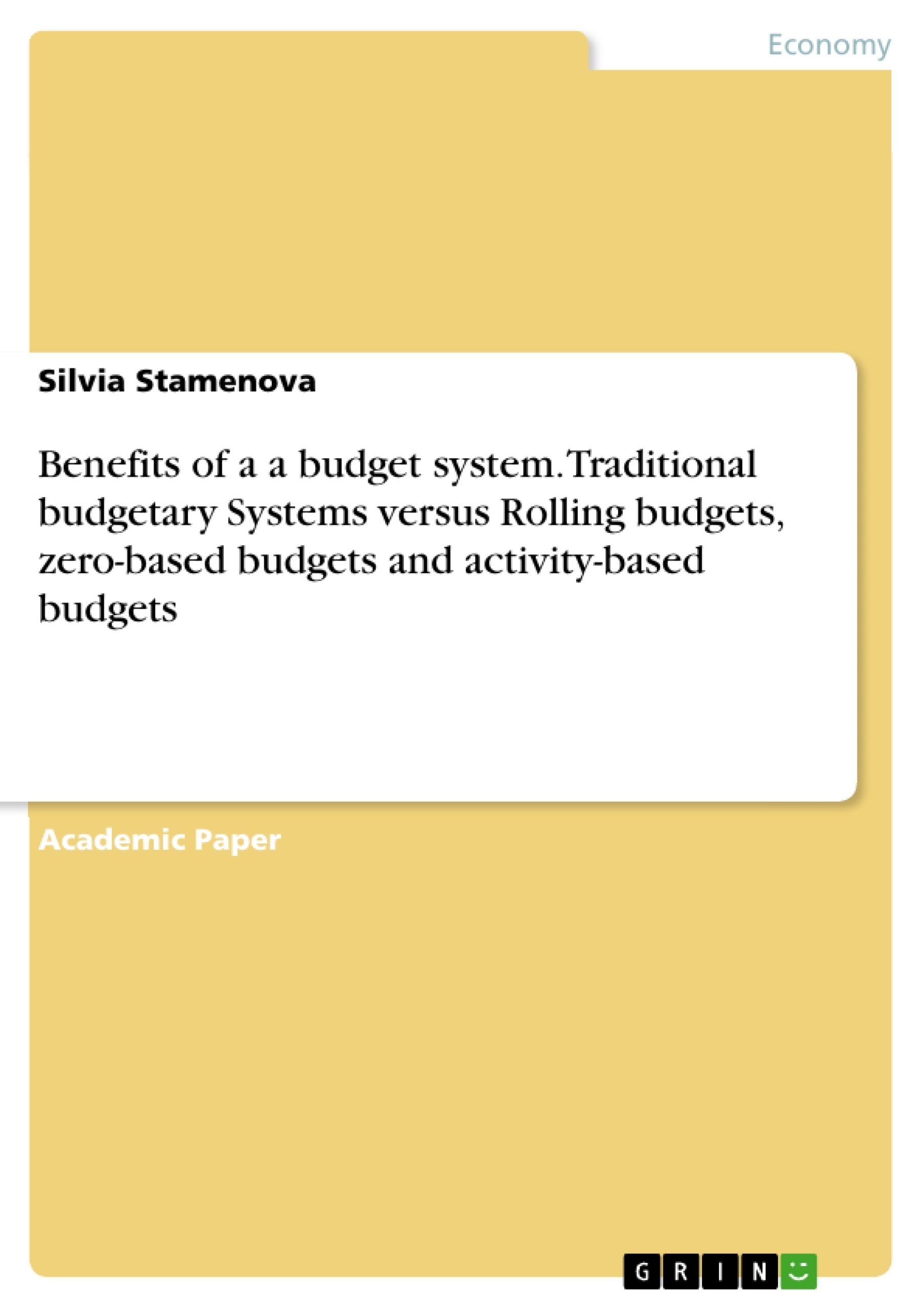Budgeting is one of the most important areas of company’s activity, being highly susceptible to challenges in the business medium. Thus, this report outlines the benefits from having a budget system, as well as the positives of the budget process to the development of the company. However, even traditional budgeting system has its negatives for the company; it does not inspire change, the method does not offer incentives, inspires expenses at any price, without the absolute necessity of performing them. Importantly, an analysis of the suitability of the incremental budgeting system within the context of the industry UniDate operates into has been made.
Inhaltsverzeichnis (Table of Contents)
- Part 1
- How Unidate benefits from having a budget system? The budget process and the development of the company.
- Key areas of the business of UniDate that the budget needs to address.
- Traditional budgetary system whether or not it is appropriate for UniDate in its future form
- Part 2
- Rolling budgets, zero-based budgets and activity-based budgets.
Zielsetzung und Themenschwerpunkte (Objectives and Key Themes)
The report explores the advantages of utilizing a budget system within the context of a company's operations, highlighting the benefits it brings to both the company's development and its overall well-being. The paper examines traditional budgeting methods, including their drawbacks, and then delves into alternative budgeting systems such as rolling budgets, zero-based budgets, and activity-based budgets.
- Benefits of having a budget system
- Drawbacks of traditional budgeting systems
- Alternative budgeting systems
- The suitability of different budgeting systems for UniDate
- The impact of budgeting on company development and performance
Zusammenfassung der Kapitel (Chapter Summaries)
Part 1
This part explores the benefits of having a budget system for Unidate, focusing on how it can foster forward thinking, coordinate departments, stimulate managerial performance, and establish better control systems. The chapter examines the relationship between the budget process and the long-term plans of the company, highlighting the importance of constant updates and refinements. It also delves into the challenges of traditional budgeting systems and their limitations in meeting the demands of the competitive environment that Unidate operates in.
Part 2
This part introduces alternative budgeting systems, including rolling budgets, zero-based budgets, and activity-based budgets. It discusses the advantages and disadvantages of each system and how they can be implemented in a company like UniDate. The chapter also touches on the specific needs and challenges of UniDate's operating environment and how alternative budgeting systems can address those issues.
Schlüsselwörter (Keywords)
The primary keywords and focal topics of this report include budgeting systems, traditional budgeting, rolling budgets, zero-based budgeting, activity-based budgeting, company development, performance management, and the competitive environment. These concepts are explored in the context of the dating agency UniDate, analyzing the suitability of different budgeting systems and their impact on the company's growth and success.
Frequently Asked Questions
What are the benefits of implementing a budget system in a company?
A budget system fosters forward thinking, coordinates departments, stimulates managerial performance, and establishes effective control systems.
What are the drawbacks of traditional incremental budgeting?
Traditional systems often fail to inspire change, offer no incentives for efficiency, and may encourage spending simply to exhaust the budget.
What is a "Rolling Budget"?
A rolling budget is continuously updated by adding a new accounting period as the current one expires, allowing for more flexibility in a changing business environment.
How does Zero-Based Budgeting (ZBB) differ from traditional methods?
Unlike traditional methods that adjust previous budgets, ZBB requires every expense to be justified from scratch for each new period.
What is Activity-Based Budgeting (ABB)?
ABB focuses on the costs of activities that drive business performance, aligning resources more closely with actual operational needs.
Why might traditional budgeting be inappropriate for UniDate?
UniDate operates in a highly competitive and dynamic industry where static, traditional budgets may not allow for the necessary rapid adjustments.
- Citar trabajo
- Bachelor Silvia Stamenova (Autor), 2017, Benefits of a a budget system. Traditional budgetary Systems versus Rolling budgets, zero-based budgets and activity-based budgets, Múnich, GRIN Verlag, https://www.grin.com/document/427077



